Welcome to Good Market Info!
Click the logo to return to the Good Market app
Welcome to Good Market Info! Click the logo to return to the Good Market global app.

Welcome to the 36 social enterprises, cooperatives, responsible businesses, civic organizations, and networks that became Good Market approved in January 2023! This month’s roundup includes new community members from Peru, Bolivia, United States, Canada, Zimbabwe, Uganda, Lebanon, United Kingdom, Germany, Ukraine, India, and Sri Lanka. More than 2,639 enterprises across 92 countries are now part of the Good Market commons. 
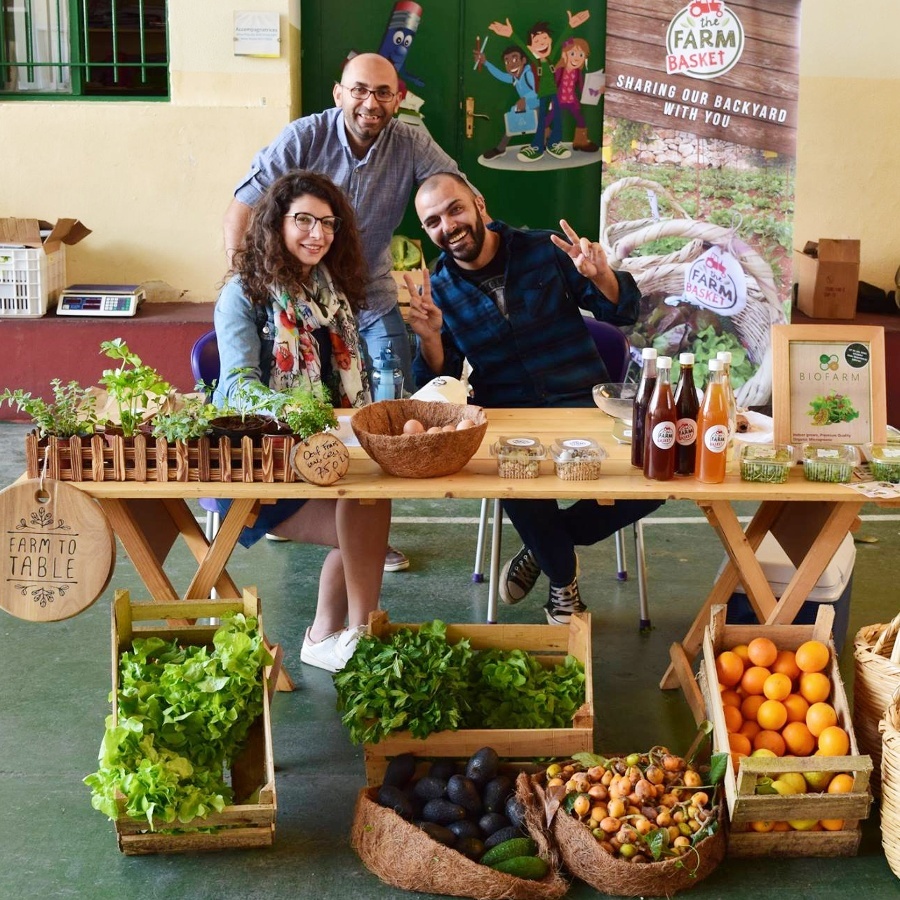
Beirut, Lebanon
Badaro Urban Farmers is a group of residents in the Badaro area of Beirut that promotes environmentally responsible local action to create a green neighborhood with a strong community spirit. They started the Badaro Farmers’ Market to offer a reliable sales and networking platform for farmers and artisans that respect the environment and the health of consumers. It can be difficult for these producers to find market channels in Lebanon. All market stakeholders sign a charter and commit to maintaining the standards. They believe people have a right to access information on where their products come from and how they were grown, produced, and processed. The weekly event includes fresh local fruits and vegetables, spices, condiments, preserves, artisanal bread, body care, flowers, handicrafts, workshops for kids, and more. Badaro Urban Farmers aim to inspire and support others to start similar initiatives in their own communities. Instead of creating a model or a franchise with standardized practices, they encourage diverse approaches based on ethical, transparent, responsible, and sustainable civic practices. Badaro Urban Farmers participates in a local agroecology coalition and is a member of the World Farmers Market Coalition.
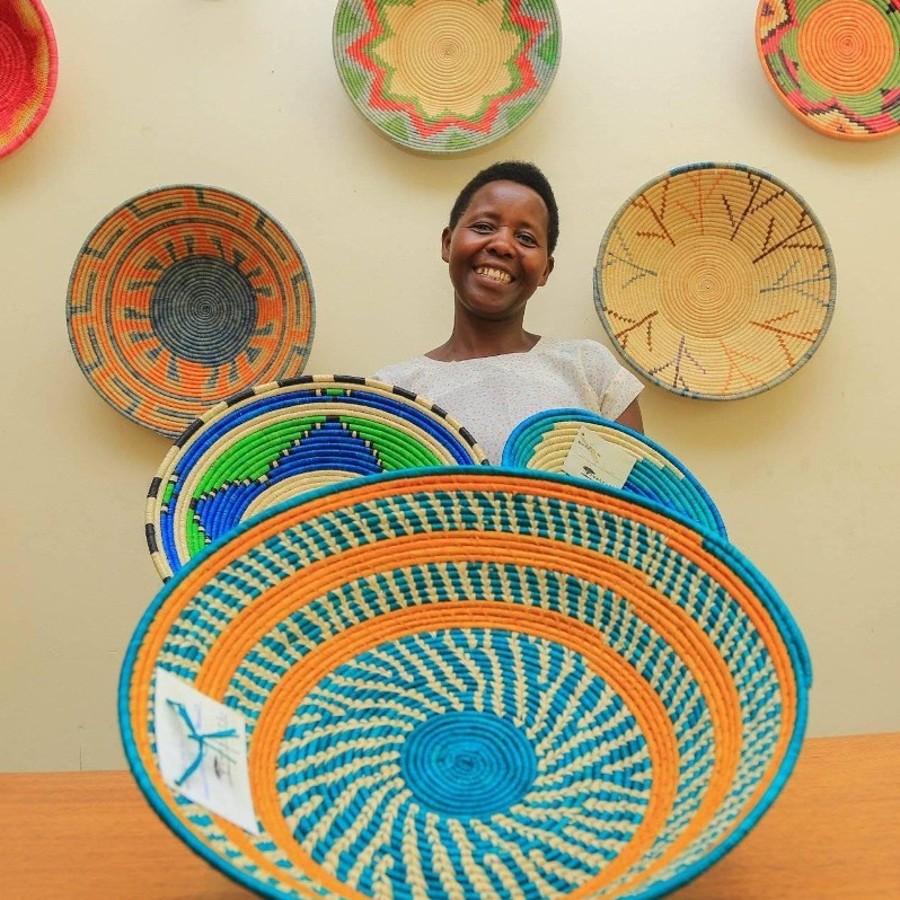
Fort Portal, Uganda
Rwenzori Sustainable Trade Center (RSTC) works with communities in the Rwenzori region of Uganda to create viable cooperative businesses that contribute to sustainable social development. They export handwoven baskets and crafts, Fairtrade and organic certified cocoa and coffee, and Fairtrade certified cotton. RSTC helps producers organize, provides training in business and financial management, works with banks to provide credit lines, supports quality improvements, ensures compliance with regulations and certification standards, and provides connections with key stakeholders and local and international markets. Their entry point in all communities is the local school. By increasing parents’ incomes, they are able to improve school enrollment, literacy, and graduation rates. RSTC also provides emergency relief when communities experience flooding due to melting glaciers. They are a signatory to the United Nations Climate Neutral Now Initiative and have received Carbon Neutral Certification with technical support from One Carbon World. RSTC is a provisional member of the World Fair Trade Organization (WFTO) and is working towards Bird Friendly Certified for coffee and cocoa.
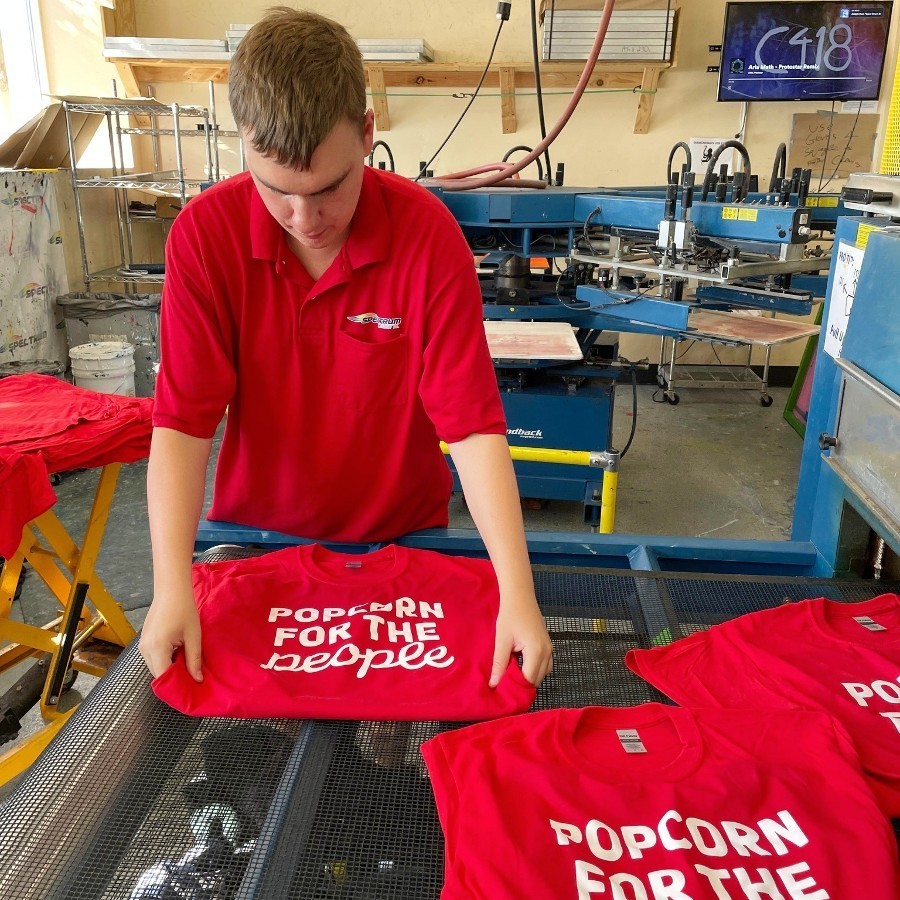
Port Washington, New York, United States
Spectrum Designs custom prints apparel and promotional products and creates meaningful and inclusive employment and vocational training opportunities for people on the autism spectrum. Services include screen printing, embroidery, heat transfers, direct-to-garment printing, graphic design, post-production fulfillment, and drop shipping. Spectrum Designs enables people of all skill sets and abilities to flourish, improve self-confidence, make friends, gain independence, earn a paycheck, and more. They use renewable energy, LED lighting, environmentally responsible inks, soy-based cleaners, compostable apparel bags, and corrugated boxes certified by the Sustainable Forest Initiative. Spectrum Designs partners with The Nicholas Center to ensure all staff have the support of educational specialists who can help with behavioral and personal goals and real-world job skills. They are registered as a 501(c)3 not-for-profit organization and reinvest all profits towards their mission.
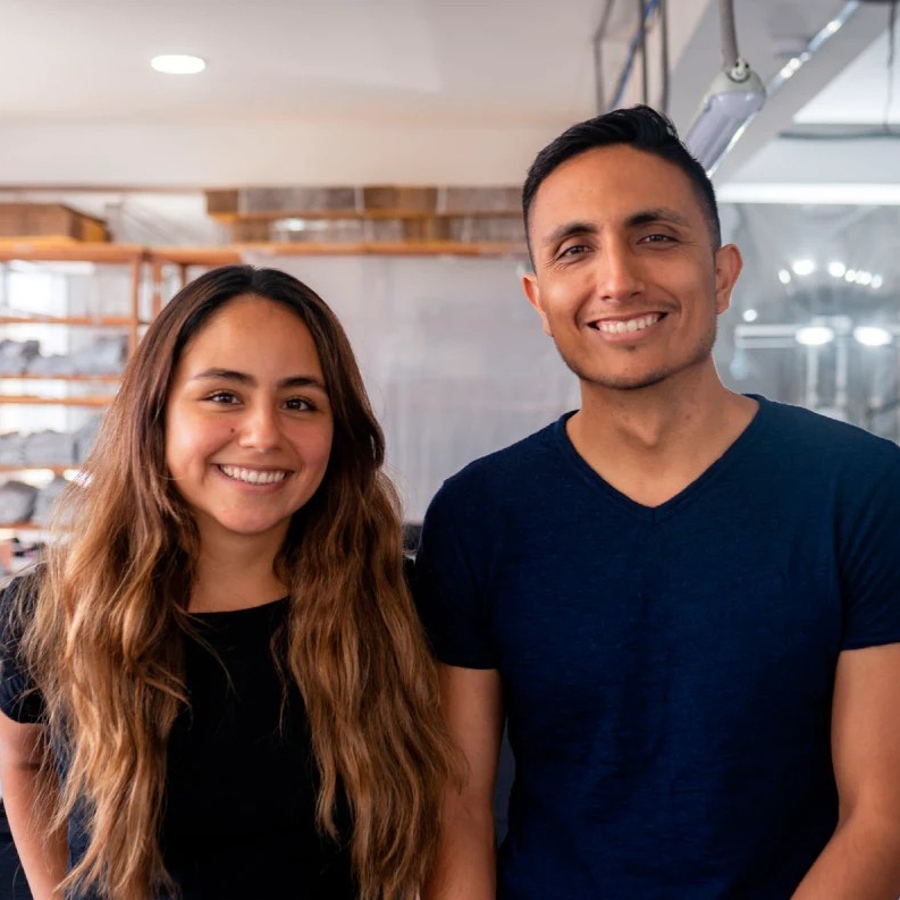
Lima, Peru and California, United States
Aya Eco produces sustainable clothing to lead by example, revolutionize the fashion industry, and prevent global pollution. Their plastic-free clothing is made from organic certified Pima cotton and either plant-based natural dyes or GOTS-certified low-impact dyes. All materials, including threads and labels, are petrochemical free and biodegradable at end of life, and by using organic cotton instead of conventional, they are able to save 2,000 liters of water for every T-shirt made. Aya Eco is a single-origin manufacturer and manages their own production studio for full transparency and traceability. Every step of their supply chain, from cotton farming to garment production, is located in Peru to minimize the carbon footprint. The finished products are shipped in compostable packaging from their distribution centers in Los Angeles and Amsterdam. Aya Eco is part of I’m Plastic Free and the Plastic Pollution Coalition.
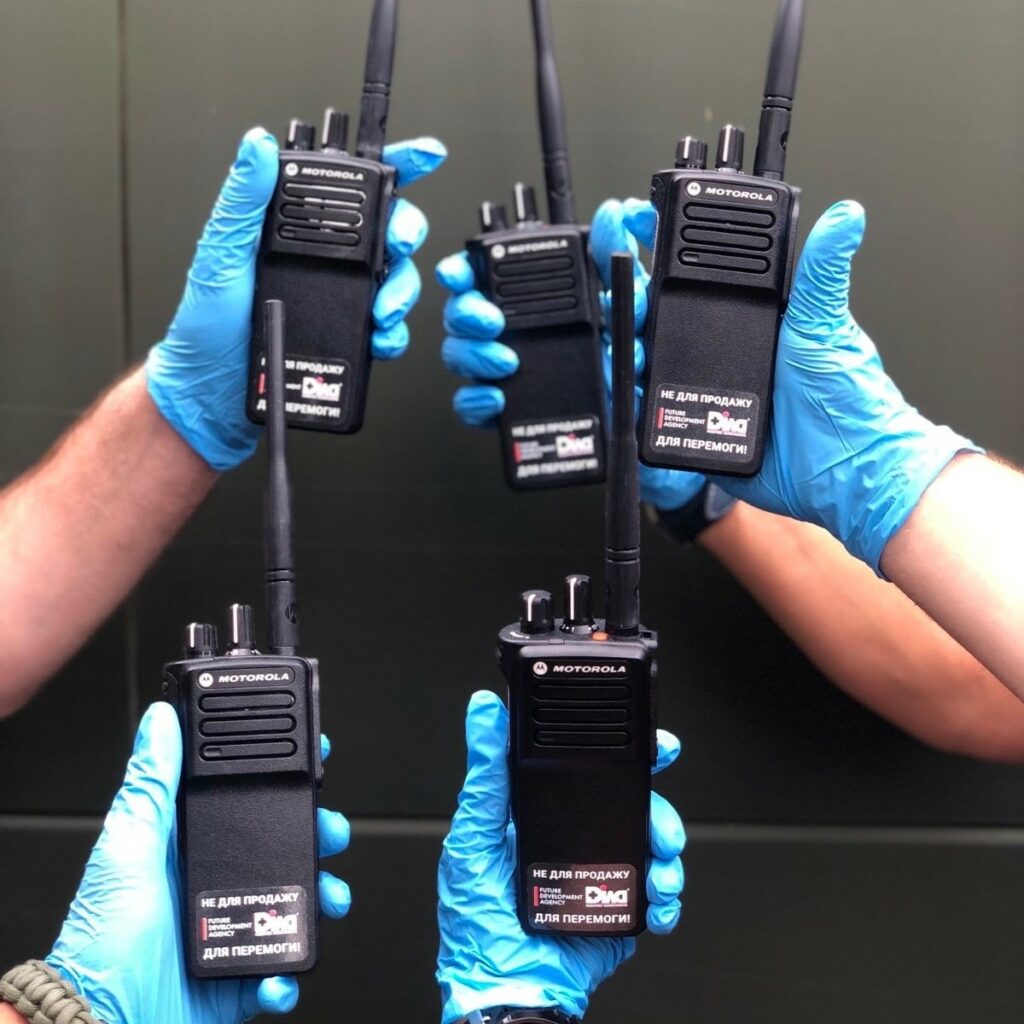
Kyiv, Ukraine
Future Development Agency aims to develop human potential, create an open, harmonious society, and contribute to improved living standards in Ukraine. They offer training, consulting, and technical services, implement their own social innovation projects, and provide back-office administrative support for social impact initiatives by state institutions, social businesses, and non-governmental organizations. Future Development Agency mobilizes resources to purchase equipment for paramedics and essentials for internally displaced people and highlights the role of social entrepreneurs and social businesses in the war response. They manage FUND4UKRAINE, the Fund for Promoting the Achievement of the Sustainable Development Goals in Ukraine, and the Leaders Fund. Future Development Agency is part of Global Compact Network Ukraine and European Network of Social Integration Enterprises (ENSIE).
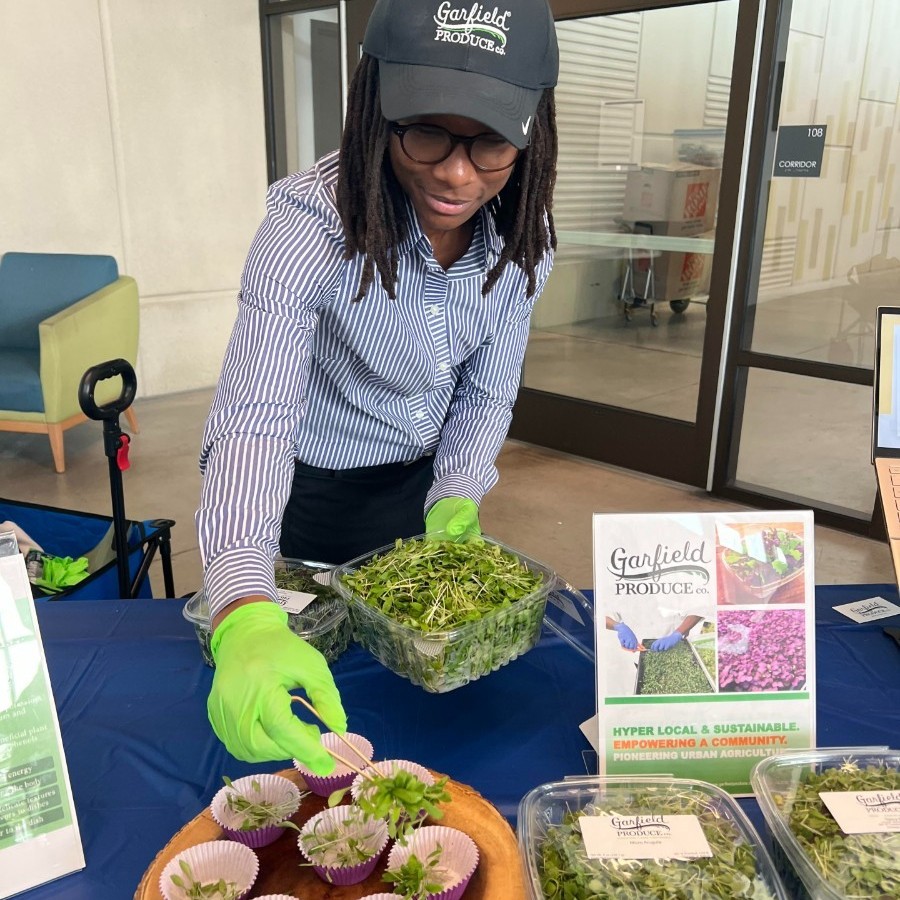
Chicago, Illinois, United States
Garfield Produce grows fresh hydroponic microgreens to create jobs, serve under-resourced neighborhoods, and build sustainable wealth. They operate an indoor vertical farm in a 100-year-old repurposed warehouse in East Garfield Park. More than 60 percent of their employees were formerly incarcerated. Garfield Produce provides steady meaningful employment with regular hours, a supportive management team and work culture, individualized training and development, and advancement opportunities like sharing in company equity or support to develop their own farming operations. Their crops are free from pesticides, produced hydroponically to minimize water and land use, and sold to local food distributors and retailers to minimize transport and carbon emissions. All of their growing waste is composted. Garfield Produce provides farm tours to neighborhood school groups, participates in The Hatchery Chicago, and addresses local food desert concerns by donating microgreens to be sold at the East Garfield Park Neighborhood Market and providing more than 500 pounds of microgreens annually to the Breakthrough and Marillac House food pantries.
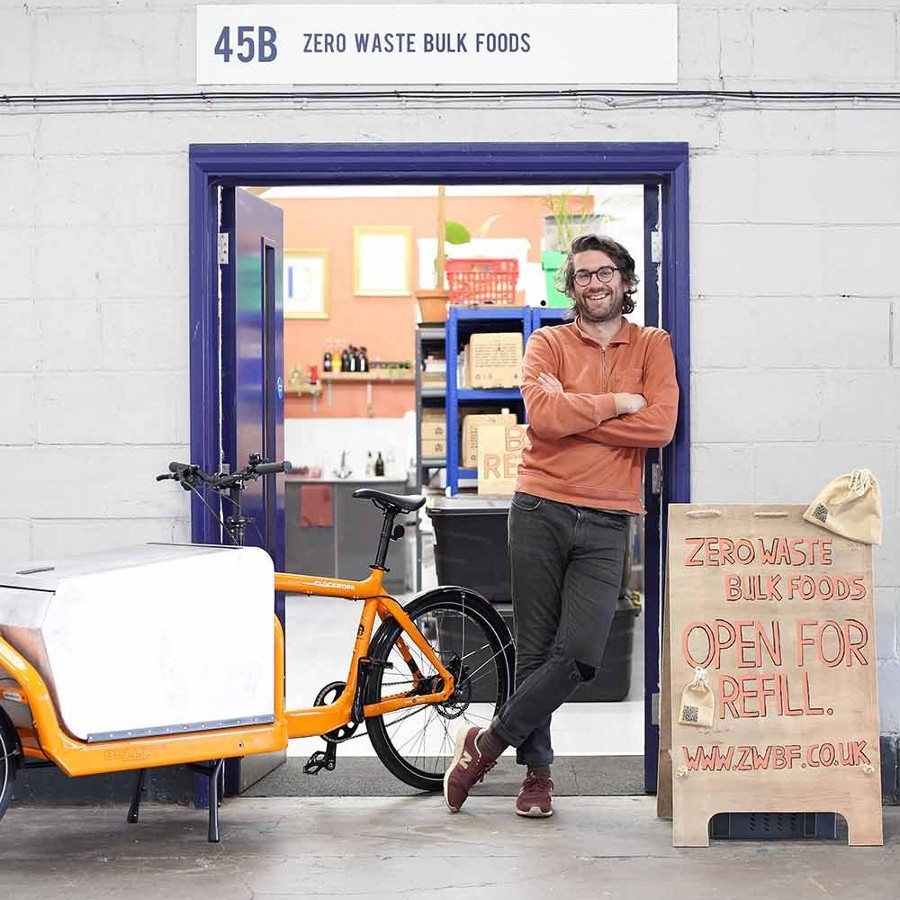
London, England, United Kingdom
Zero Waste Bulk Foods aims to reduce waste and improve the wellbeing of people, animals, and the environment by supplying groceries and home essentials in reusable packaging that’s simple to return. They work with farmers and makers worldwide to find the best natural and organic products, source close to home whenever possible, maintain minimal markups, and pass on savings to customers to make their service more accessible and inclusive. Zero Waste Bulk Foods sends orders with pre-paid return labels so the packaging can be sent back, cleaned, and reused. They deliver locally by cargo bike and partner with Packfleet to offer carbon-neutral delivery within London. Their warehousing, packing, distribution, and online retailing services are certified organic by Organic Farmers & Growers (OF&G). Zero Waste Bulk Foods works with The Hornbeam and donates surplus food to their Gleaners Cafe.
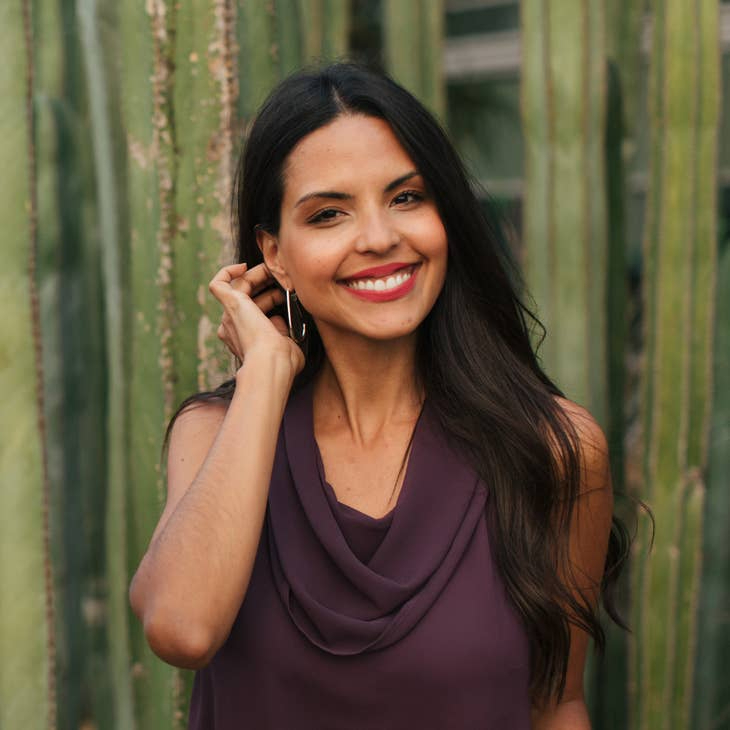
Phoenix, Arizona, United States
Redemption Market assists survivors of trafficking and those living in marginalized communities by providing a marketplace for their ethical goods and a means to fund their social justice programs. By sourcing fair trade and sustainable bags, jewelry, clothing, and housewares from social justice partners around the world, they are able to connect customers who want to make meaningful purchases with artisans who benefit from dignified work. Redemption Market sells at low margins to make the products more accessible and to maximize revenue for anti-trafficking initiatives and marginalized communities. They are part of Local First Arizona and Freedom Business Alliance.
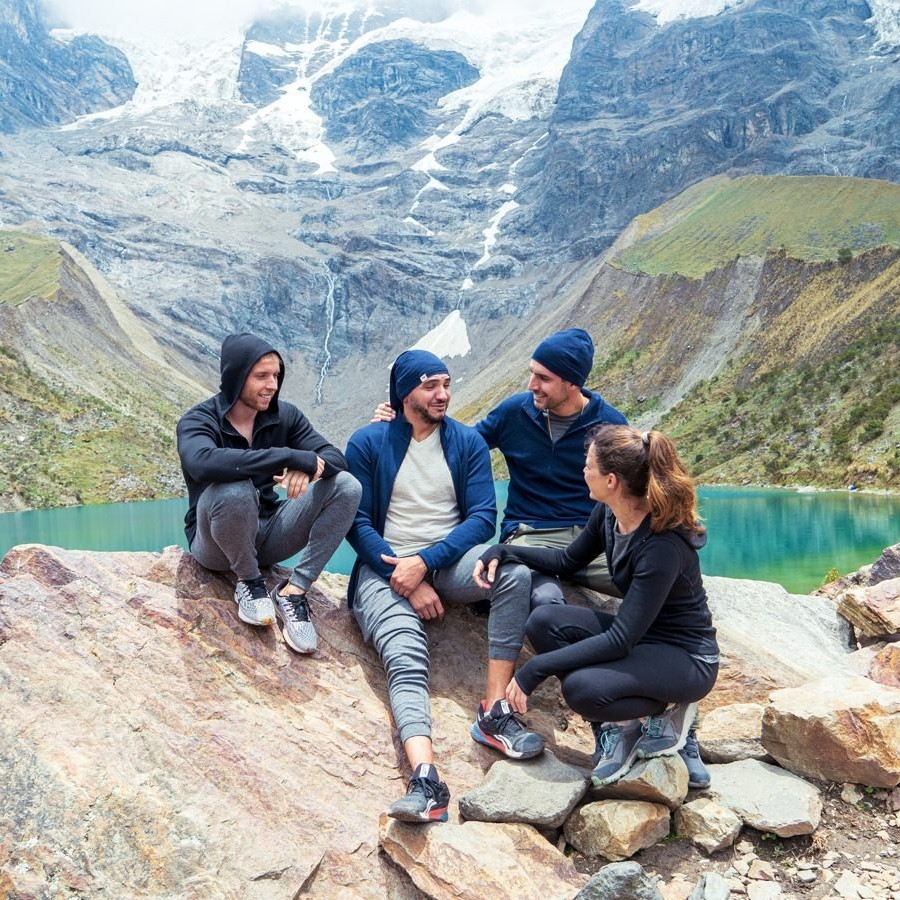
Lima, Peru and California, United States
Arms of Andes manufactures sustainable high-performance outdoor apparel that preserves traditional Peruvian alpaca wool production and leads the way in environmentally responsible clothing. Alpacas evolved at high altitudes in the Andes Mountains and adapted to extreme temperature variations. Their wool is a lightweight, breathable, durable, moisture-wicking, anti-bacterial natural fiber with excellent thermoregulation properties. Arms of Andes sources raw fleece directly from farming families that raise small herds of free-roaming alpaca, use gentle shearing techniques, and keep their animals safe and healthy. They carry out every stage of production, from sourcing alpaca fiber to manufacturing garments, in Peru to minimize their carbon footprint and ensure traceability. Arms of Andes offers an original range made with low-impact dyes and a Leave No Trace collection that is fully biodegradable and colored with indigo, cochineal, eucalyptus, and molle natural dyes. They are working to reduce plastic and synthetic materials throughout their supply chain.
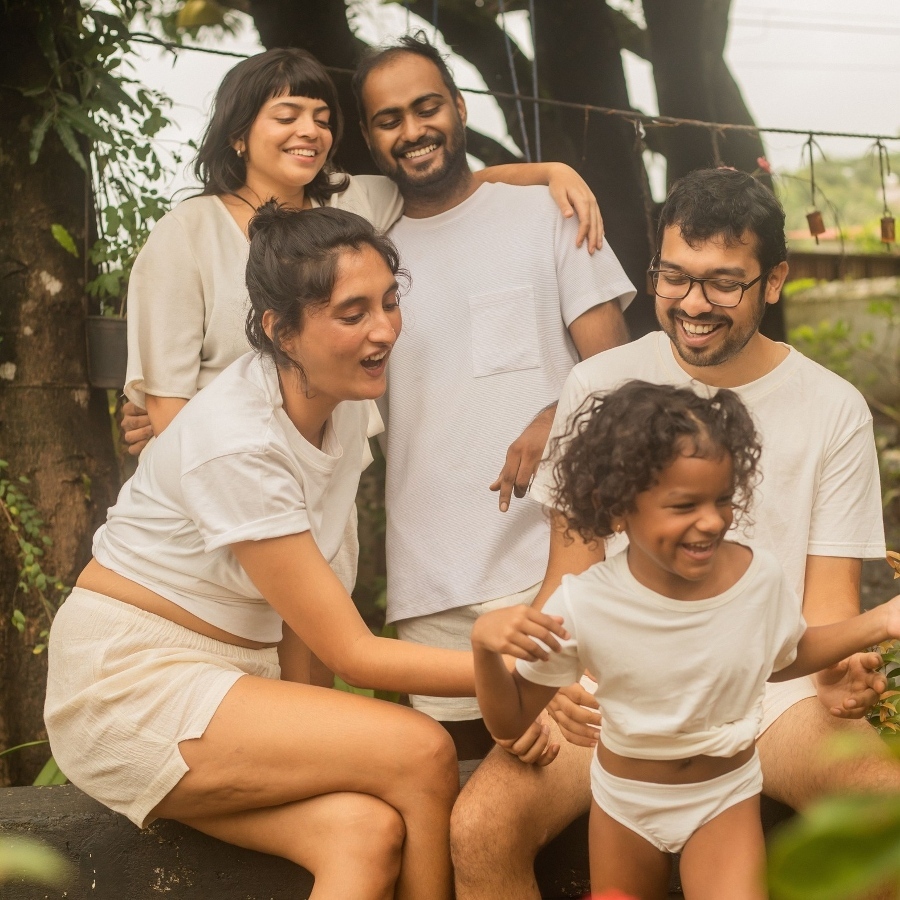
Bandoli, Goa, India
Maayu supports the health and wellbeing of people and the planet by making organic cotton underwear that is free from synthetic bleaches, dyes, fibers, and spandex. Their panties are made from GOTS-certified organic cotton and their boxers are handwoven from indigenous cotton that is organically grown. Maayu provides training and skill development in rural communities and sources from rural artisans, small-scale farmers, and fair trade factories. They compost, reuse packaging, minimize waste, and use one percent of all profits to plant indigenous trees and protect forests. Maayu is actively engaged in their local community in Goa and participates in networks for social and environmental change.
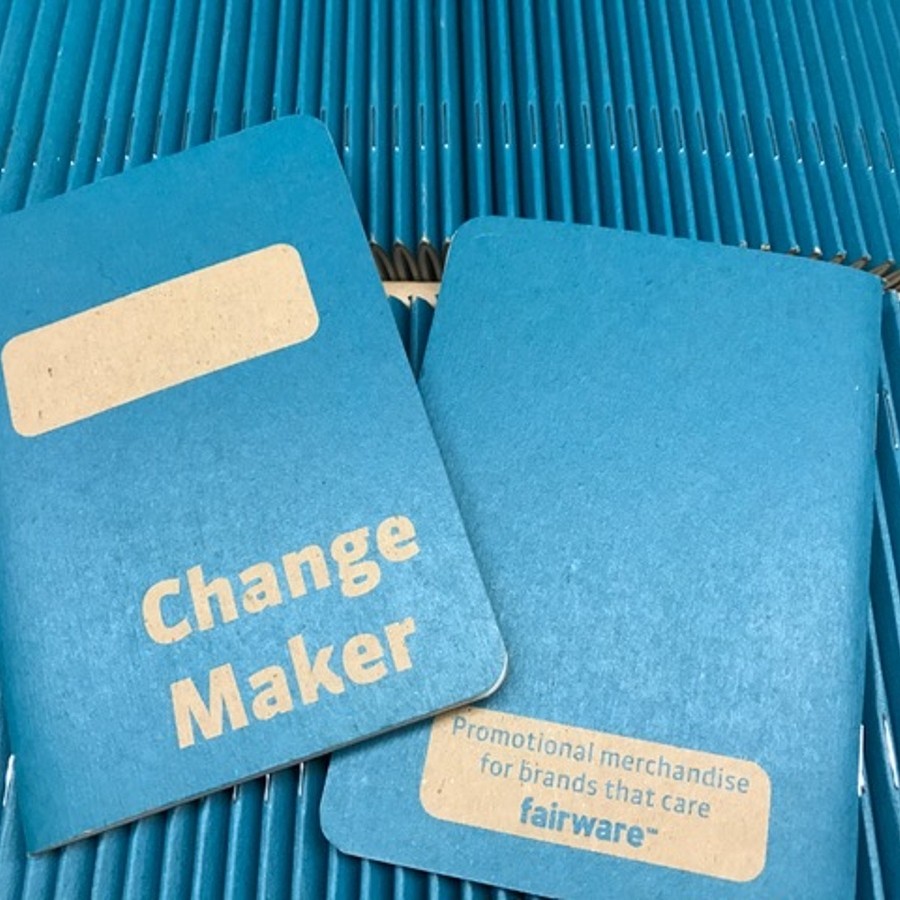
Vancouver, Canada
Fairware makes it easier for businesses and nonprofits to buy custom-branded promotional products that are ethically sourced, environmentally responsible, and aligned with their values and campaign goals. They offer strategy-first campaign ideas, product and material research, supplier assessments, packaging and kitting services, and online ordering solutions that reduce the administrative burden of managing corporate gifting, branded apparel, and promotional merchandise programs. Fairware actively seeks out social enterprises and diverse-owned, responsible businesses as suppliers and prioritizes products that are durable and made from compostable, easily recyclable, or upcycled materials. They maintain a lanyard lending library for events, use 100 percent renewable energy, compost and recycle office waste, and have a merchandise end-of-life policy. Fairware is committed to recruiting and retaining a diverse workforce and providing a safe and inclusive space for people to work and thrive in their roles. They are a B Corporation, a certified Living Wage Employer, a licensee of the Fair Labor Association, and a member of Accessible Employers. Fairware is certified women-owned by WBE Canada and certified LGBT-owned by CGLCC.
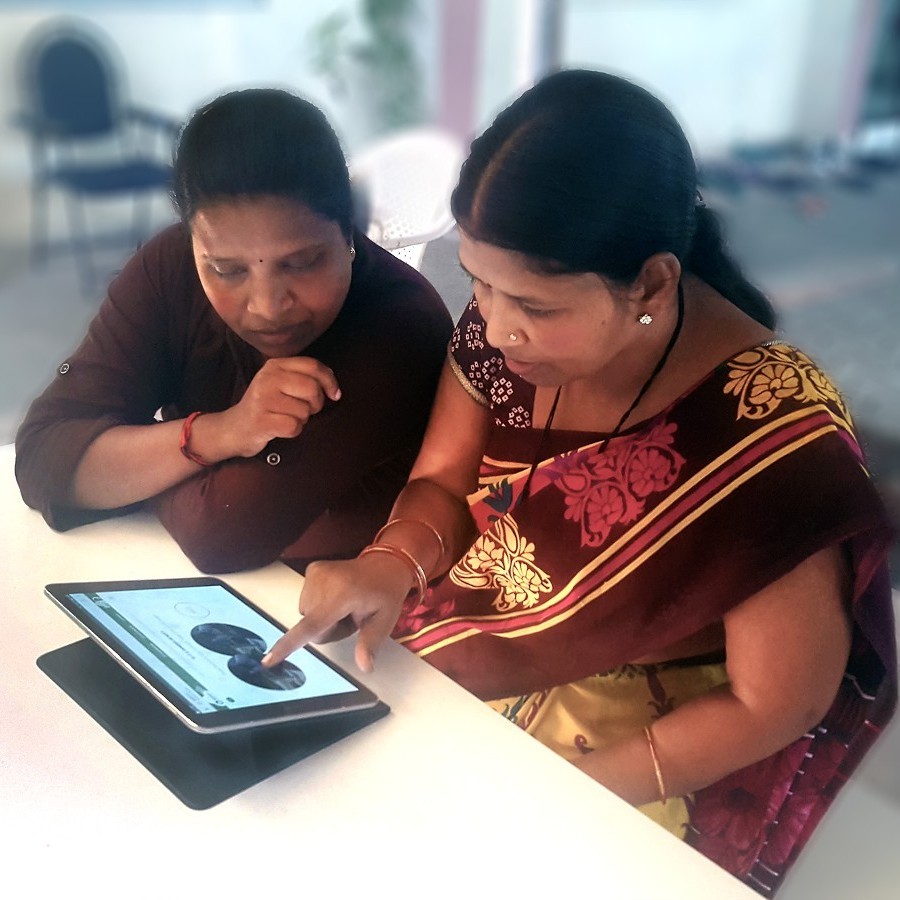
Berlin, Germany
Sustify aims to revolutionize global supply chain management by educating production workers on topics like occupational health and safety and human rights. Their approach enables global companies to go beyond conventional audits, increase social compliance, and minimize risk in their supply chains. International suppliers are able to provide verifiable training for their entire workforce, not just management, either as a preventative measure or part of a corrective action plan. Sustify’s eLearning courses are gamified and can be adapted to different industries, cultures, languages, and literacy levels. Their learning algorithm provides personalized content and ensures each production worker goes through a course at their own pace. Sustify also offers a grievance management system to support continuous improvement and legal compliance. They are part of a sustainable coworking space, Social Entrepreneurship Netzwerk Deutschland (SEND), Gemeinwohl-Ökonomie (GWÖ), and Solidarische Landwirtschaft (SoLaWi) Berlin.
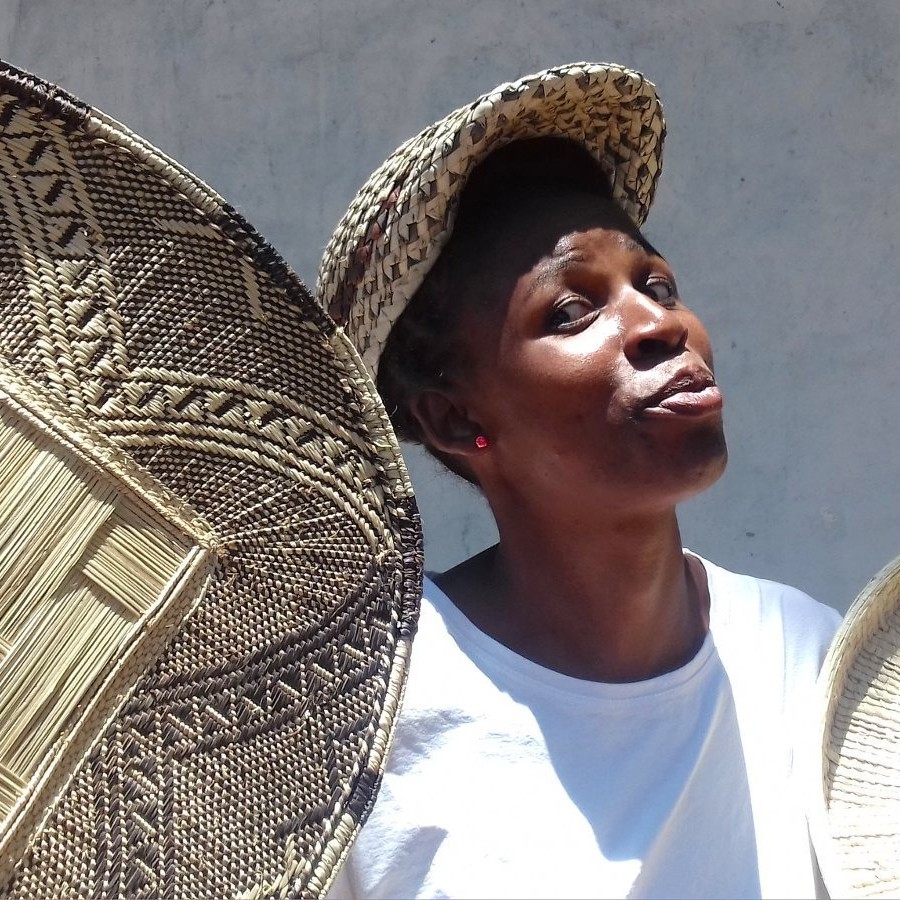
Binga, Zimbabwe
Zubo was started by rural Tonga women in the Zambezi Valley to champion the sustainable use of natural resources and the rights of women. They bring women together so they can realize their social, economic, cultural, and political potential and find solutions for the problems that affect them. The women have established women’s forums, village savings and loan groups, a jatropha soap-making workshop, basket-weaving collectives, and the first female fishing cooperative on Lake Kariba. Their natural soaps and handwoven ilala palm baskets are sold locally and through international partners. Zubo is registered as a not-for-profit organization and reinvests all revenue towards their social mission.
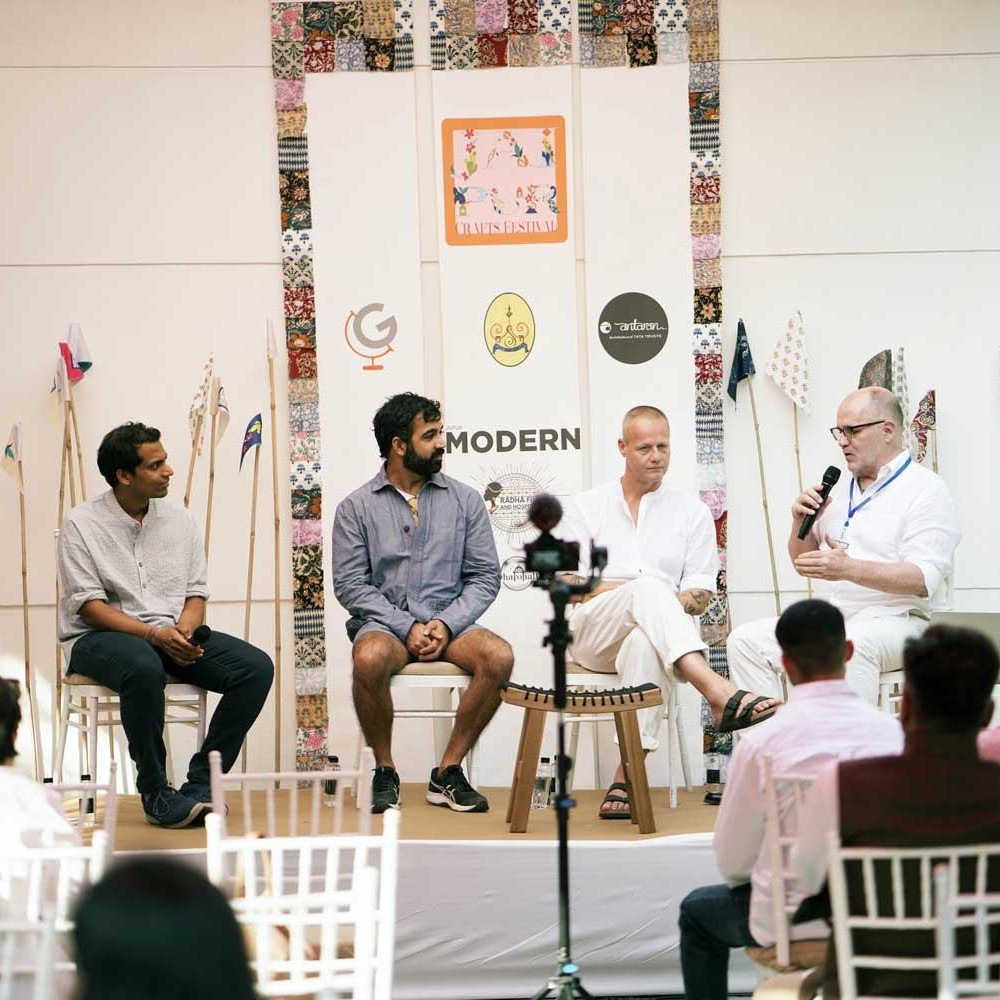
Jaipur, Rajasthan, India
Jaipur Crafts Festival aims to activate a differentiation strategy for crafts and reclaim India’s leadership role in handmade goods, design, and sustainability. They organize in-person and virtual events, inform and connect key stakeholders, engage in research and analysis, and leverage technology to decolonize crafts and shift the focus from price to quality. Jaipur Crafts Festival is a member of Catalyst 2030.
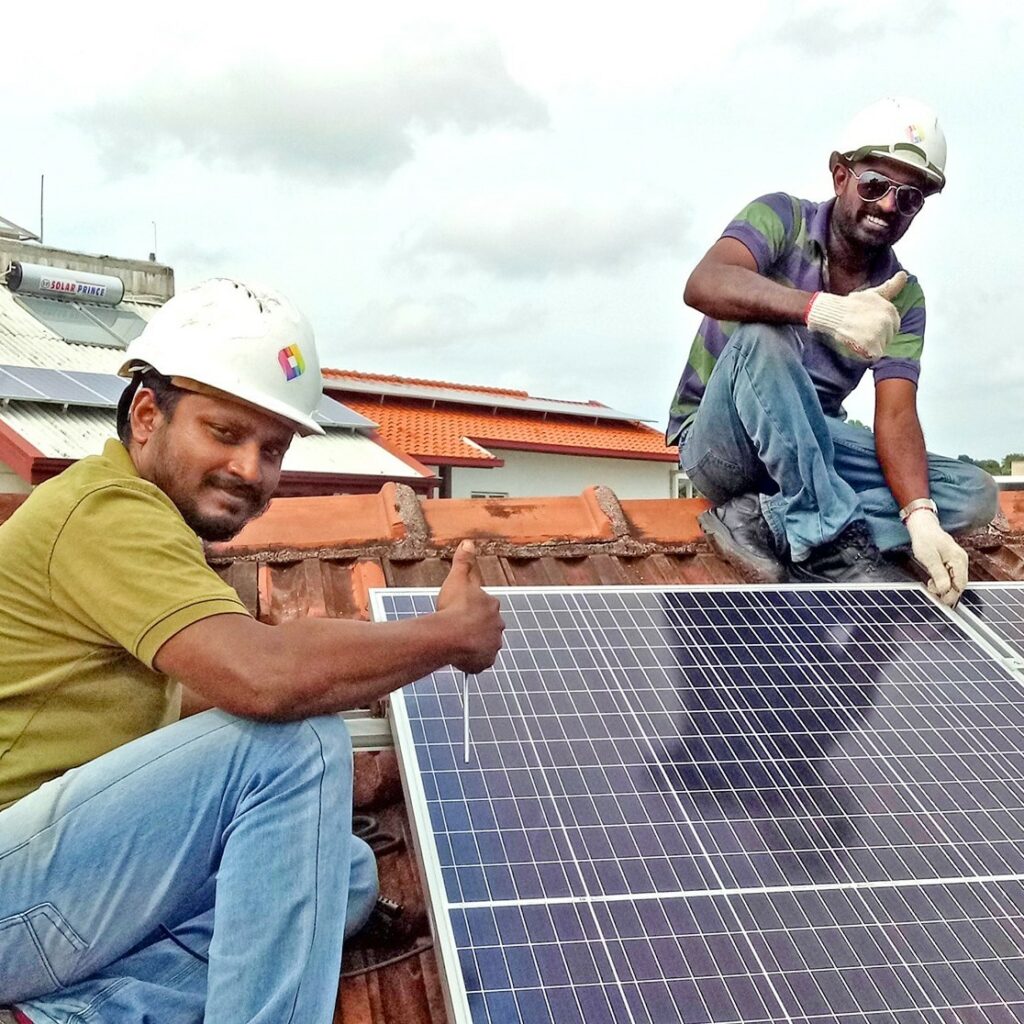
Sri Jayawardenepura Kotte, Sri Lanka
Ceynergy supports energy independence and clean water by providing sustainable solutions to the construction industry in Sri Lanka. They offer solar panels, inverters, and batteries, energy-saving solar optical films, heat-reducing roofing, and water and wastewater treatment plants. All systems are designed and installed by engineers and technicians accredited by the Sri Lanka Sustainable Energy Authority. Ceynergy sponsors work-related education and provides personal safety equipment to all workers. They worked with their technology partner StorTera to provide solar energy in a remote village without access to electricity, roads, or other infrastructure.

New Delhi, India
Swiatlo produces colorful handcrafted garments that sustain indigenous craft techniques and support women makers in India. They create small-batch collections of kaftans, dresses, shirts, pants, jackets, and more from Ajarkh blockprint textiles, upcycled sarees, and deadstock fabrics. Swiatlo partners with two all-women stitching units in Delhi. MasterG trains women for highly skilled careers as entrepreneurs or master tailors. Women Fiber to Fashion employs survivors of human trafficking. Swiatlo sells through global boutiques focused on upcycling, slow fashion, and social enterprise.

Greater Noida, Uttar Pradesh, India
Green Hermitage provides a plant-based vegan alternative to leather handbags and wallets to reconnect people with the natural environment and support the shift to a sustainable future. They use cruelty-free leather alternatives made from cactus, coconut, and apple waste, line the bags with hemp, and finish them with recycled and rust-proof metal fittings. The products are made by hand and designed to minimize waste. Green Hermitage collaborates with the KaiRassi Foundation and maintains a fund to support animal rescue and adoption. They have PETA Approved Vegan certification.
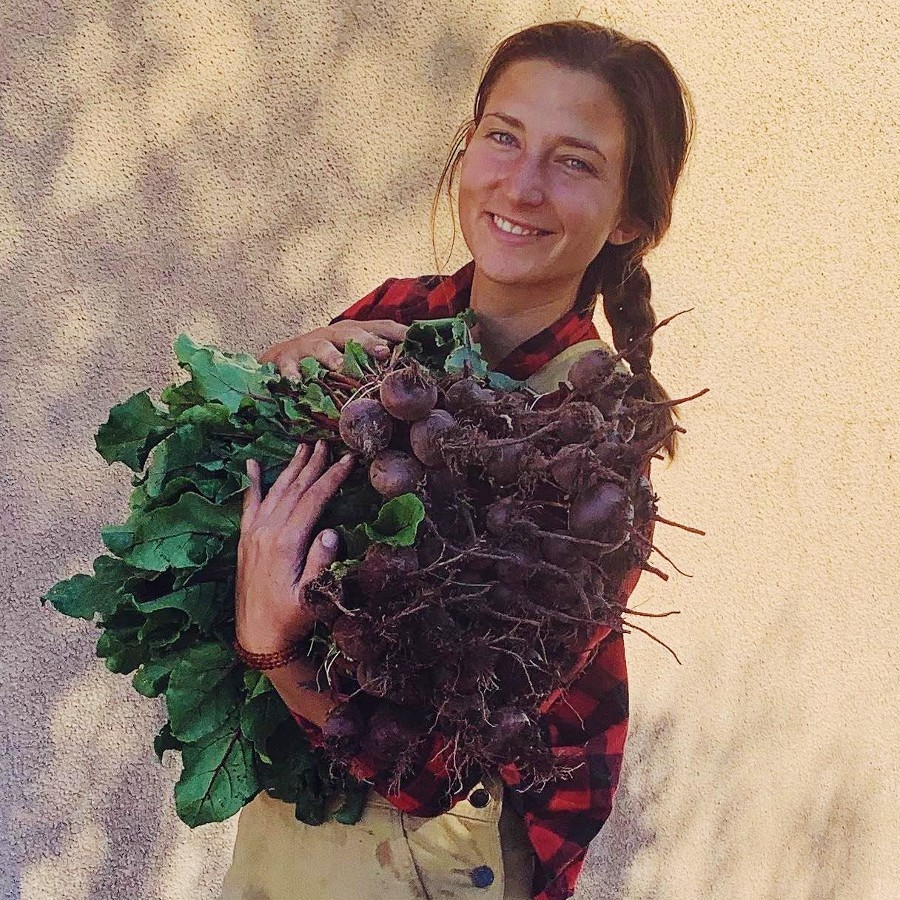
Kingman, Arizona, United States
Rosebird Farms grows fresh produce and helps build community and resilient local food systems in Northern Arizona. They cultivate more than 30 crop varieties on their 12-acre land in the Cerbat Mountains using high-density planting with a focus on soil health. Rosebird Farms offers vegetables, fruit, meat, eggs, and more from their land and other Arizona farmers and ranchers through their farm box subscriptions, online store, farm stand, and market events. They share information on how to access free or reduced-priced food in Mohave County, accept Supplemental Nutrition Assistance Program (SNAP) benefits and Double Up Food Bucks, and participate in programs that distribute fresh food to local food banks. Rosebird Farms is Certified Naturally Grown.
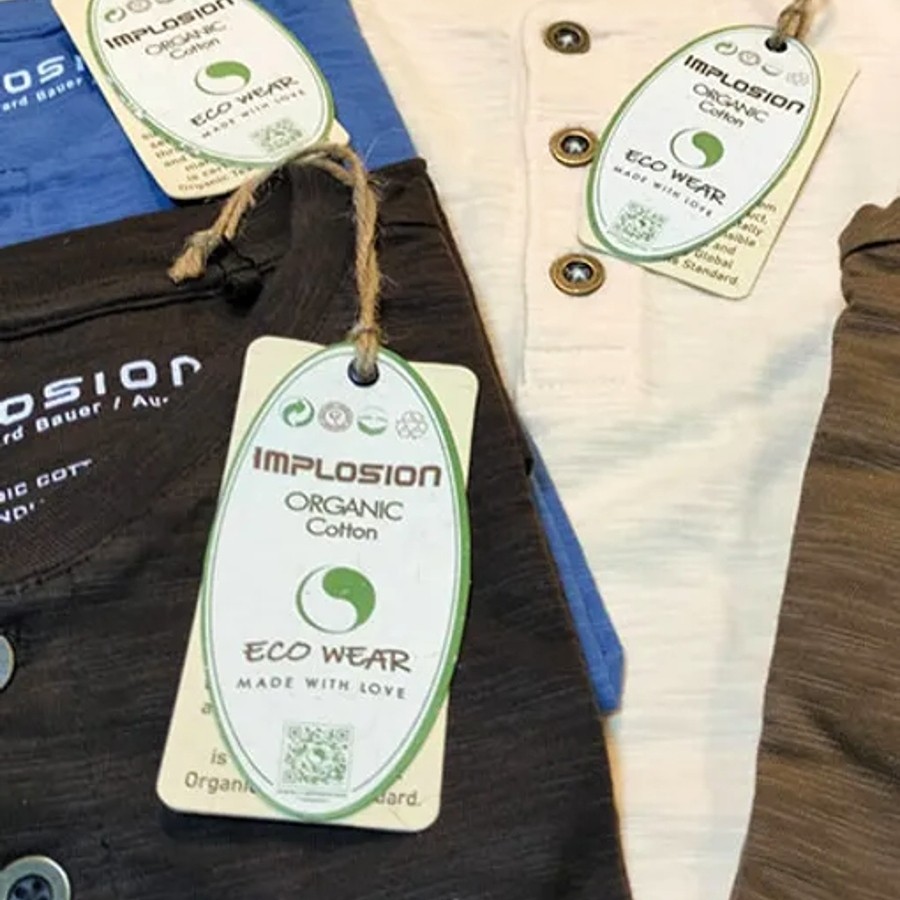
Mumbai, Maharashtra, India
Implosion makes ethical, sustainable clothing more accessible. They specialize in organic T-shirts made with Global Organic Textile Standard (GOTS) certified cotton and OEKO-TEX and REACH certified dyes. Organic cotton improves soil health and uses up to 95 percent less water than conventional cotton. Implosion maintains fair and safe working conditions and high environmental standards throughout their value chain. They support local orphanages and contribute a portion of all sales to a Workers’ Welfare Fund.
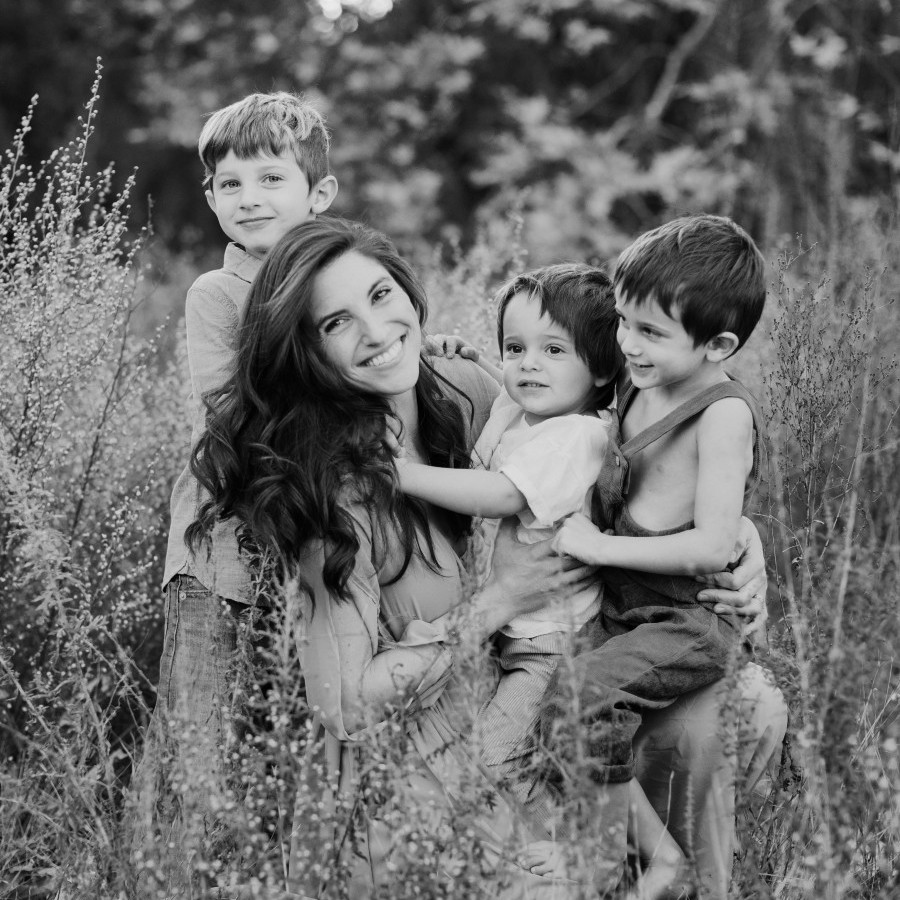
San Diego, California, United States
KindBuys simplifies conscious consumption by making it easier to find ethical and environmentally responsible products backed by third-party certifications and to understand what those certifications mean. Their free browser extension can be used to view product certifications and find more sustainable alternatives when shopping online. Their curated marketplace features apparel, housewares, body care, outdoor gear, pet supplies, and more from trusted brands using certified ethical and sustainable business practices. KindBuy donates all profits to social and environmental causes.
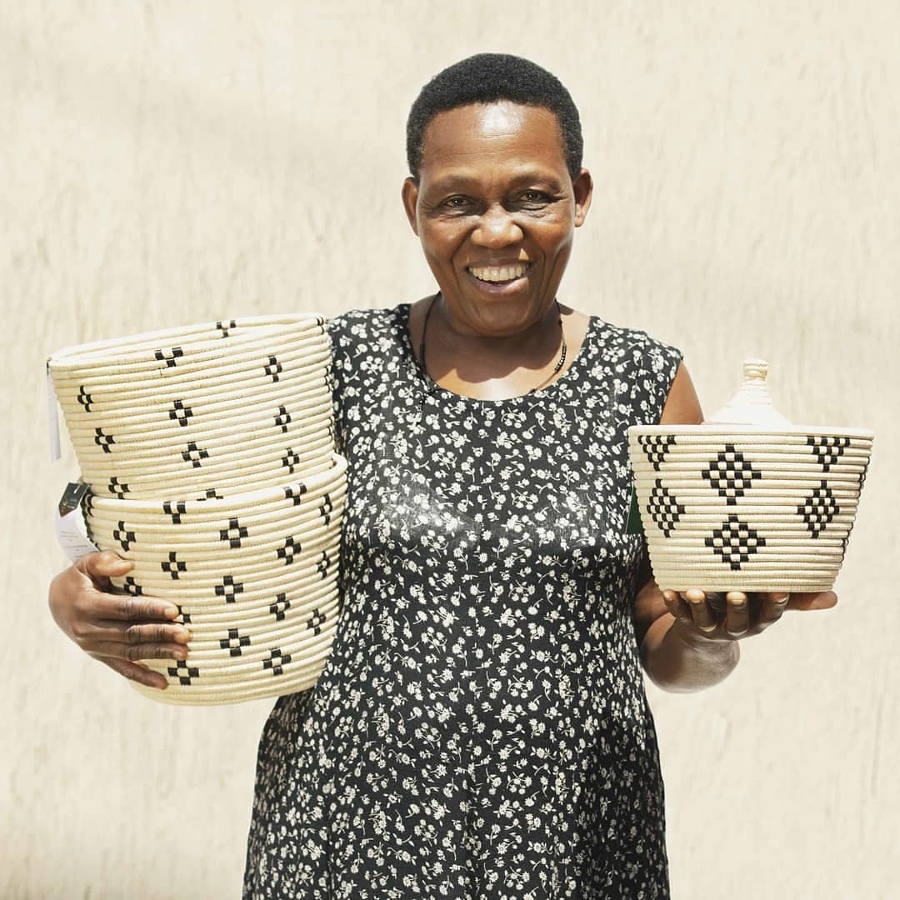
Fort Portal, Uganda
Tooro Gallery uses locally available natural resources to produce handmade baskets, improve livelihoods, and empower women, youth, and the elderly in the Tooro region of Uganda. They offer learning tours to visitors and sell handwoven baskets and housewares through local retail outlets and international partners. Tooro Gallery provides design, training, and marketing support to more than 700 member artisans. In addition to providing basket weaving training, they also organize workshops on entrepreneurship, leadership, group dynamics, life skills, fair trade principles, and environmental awareness. Tooro Gallery has developed demonstration gardens to conserve natural dye plants and management plans to protect local wetlands while sustainably sourcing raw materials. They are registered as a community-based organization and use all surplus to benefit members and support community development.
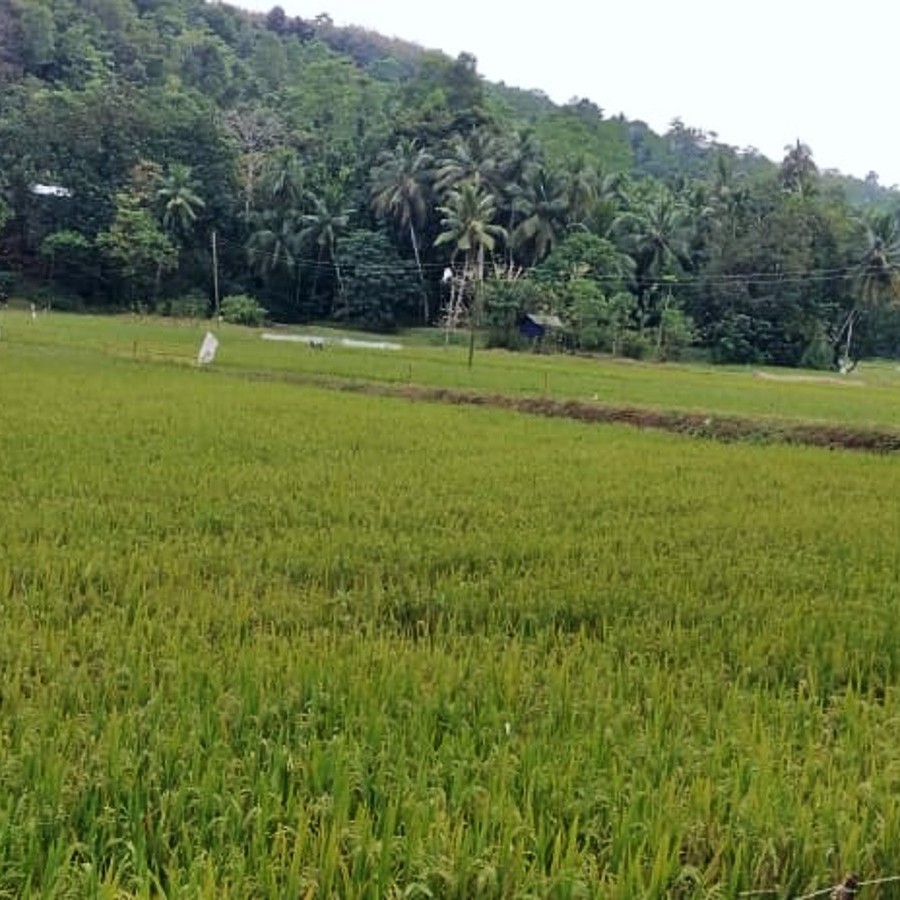
Nittambuwa, Sri Lanka
Dambutuwa Community Organization aims to uplift traditional farming to overcome economic challenges in their village. They produce fruits, vegetables, leafy greens, seeds, and free range eggs in Nittambuwa. The community organization helps farming families reduce waste, adopt organic practices, obtain certification, aggregate products, and access market opportunities. They have a revolving loan fund and maintain a shared tractor and other equipment that can be rented at reasonable rates. Committee members volunteer their time, and 100 percent of revenue is reinvested for village development.
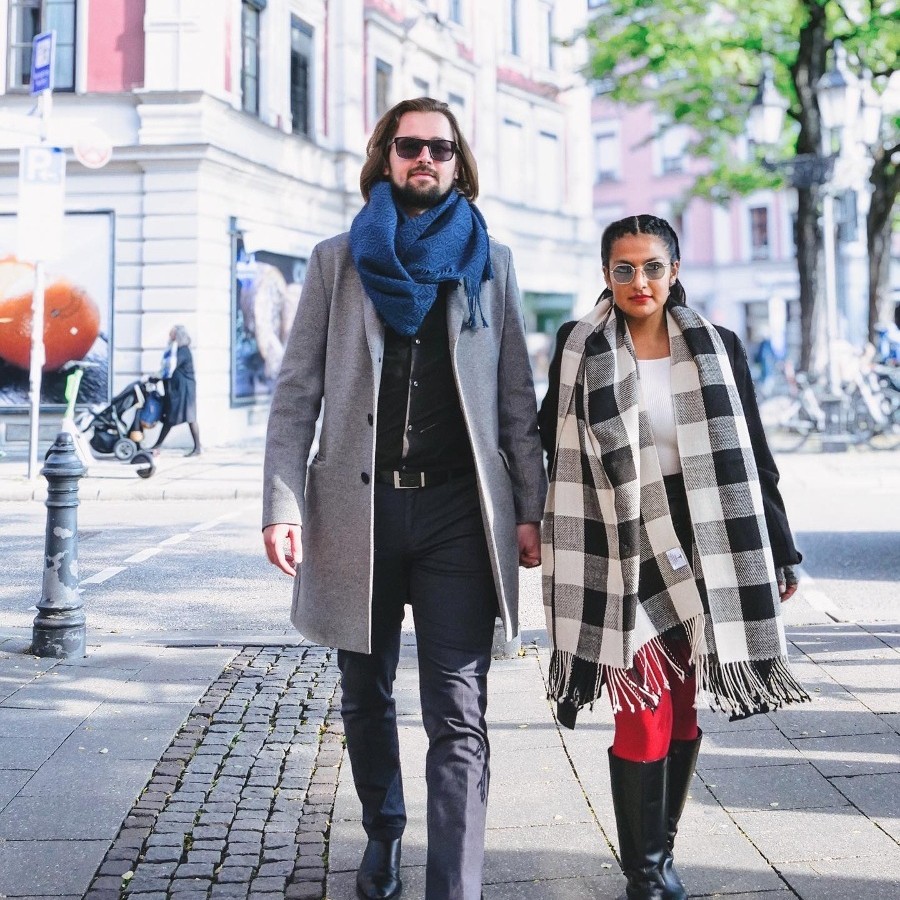
La Paz, Bolivia and Munich, Germany
TINKU celebrates Bolivian heritage and creates livelihood opportunities for indigenous artisans by promoting handmade alpaca garments in Germany. They work with Quechua and Aymara women from disadvantaged communities in the Andean highlands to produce alpaca blankets, shawls, hats, gloves, and other accessories that combine traditional skills and knowledge with modern designs for the European market. TINKU guarantees fair wages, supports women’s empowerment and environmental protection, and ships in plastic-free packaging. They donate to UNICEF Bolivia and participate in networks dedicated to slow fashion and cultural preservation like Fashion Revolution and the Cultural Intellectual Property Rights Initiative.
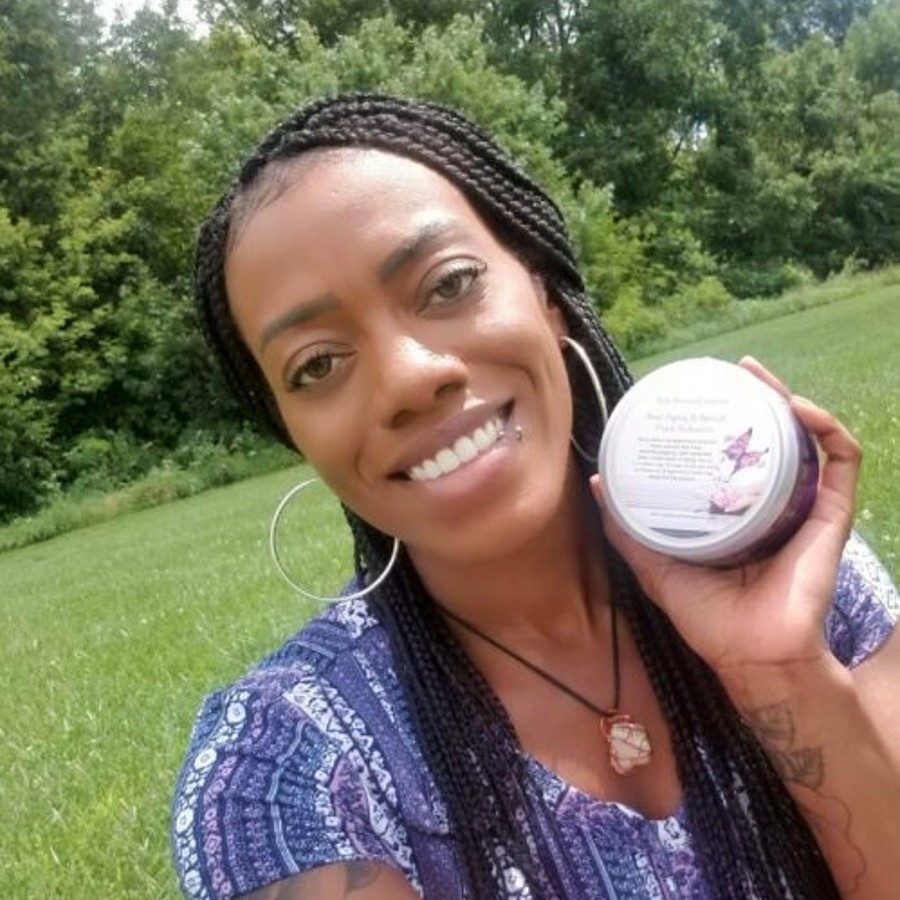
Chandler, Arizona, United States
Body Butters Creations creates clean and conscious skincare that nourishes the skin and protects the environment. They offer soaps, body washes, scrubs, face oils, creams, body butters, and lip balms made from natural, plant-based ingredients like shea butter, cocoa butter, avocado oil, coconut oil, African wild honey, and turmeric. Body Butters Creations uses their platform to raise awareness about the benefits of natural skincare. They are part of Arizona Community Farmers Markets.
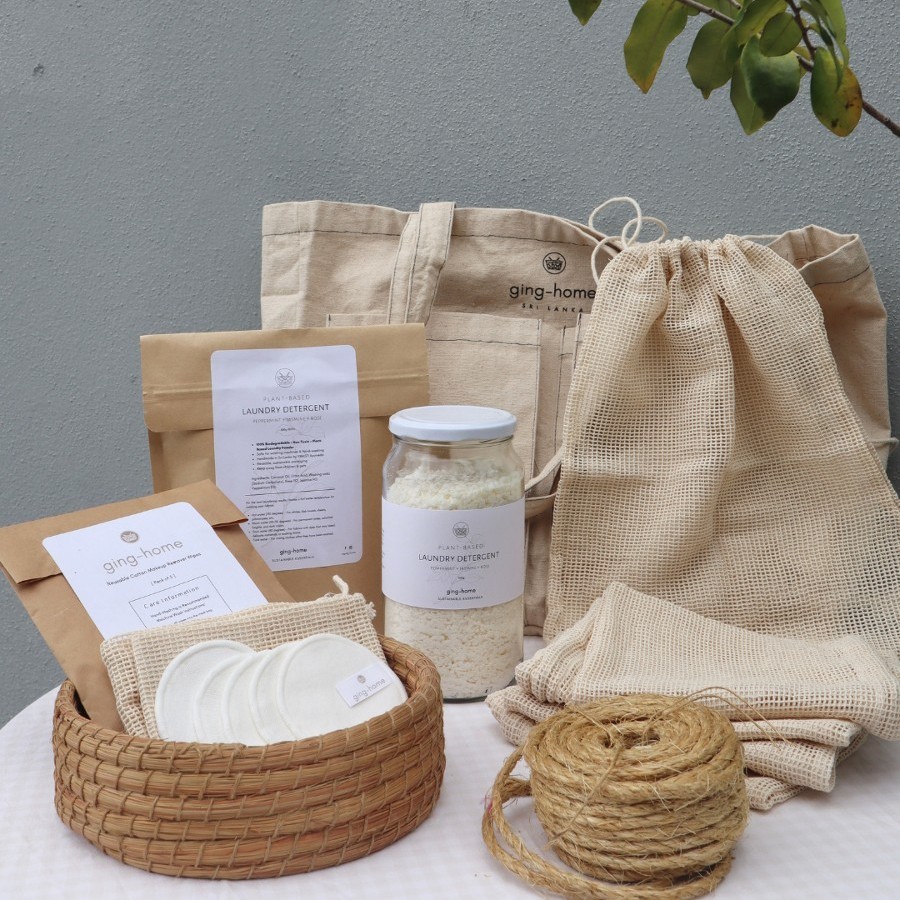
Dehiwala-Mount Lavinia, Sri Lanka
ging-home produces sustainable alternatives to home essentials to support the transition to a more environmentally conscious lifestyle. They offer canvas tote bags, cotton produce bags, reusable makeup remover wipes, plant-based laundry detergent, and more. ging-home is working towards local production and aims to make all products accessible and affordable for people in Sri Lanka. They use offcut kraft paper, plastic-free stickers, and refillable glass jars for packaging.

Detroit, Michigan, United States
Buy Social USA Marketplace helps public and private sector organizations in the United States engage in social procurement and preferentially source products and services from verified, mission-locked social enterprises. They increase opportunities for social enterprises, fair trade organizations, impact networks, and other initiatives that prioritize people and the planet over profit maximization. Buy Social USA offers pro bono services and support to help social enterprises expand and improve and maintains a marketplace where they can share their products and services. All profits are reinvested to benefit the social enterprise ecosystem in the United States. Buy Social USA is part of the Social Enterprise World Forum Community of Practice, Social Enterprise Alliance, American Sustainable Business Network, and Catalyst 2030.
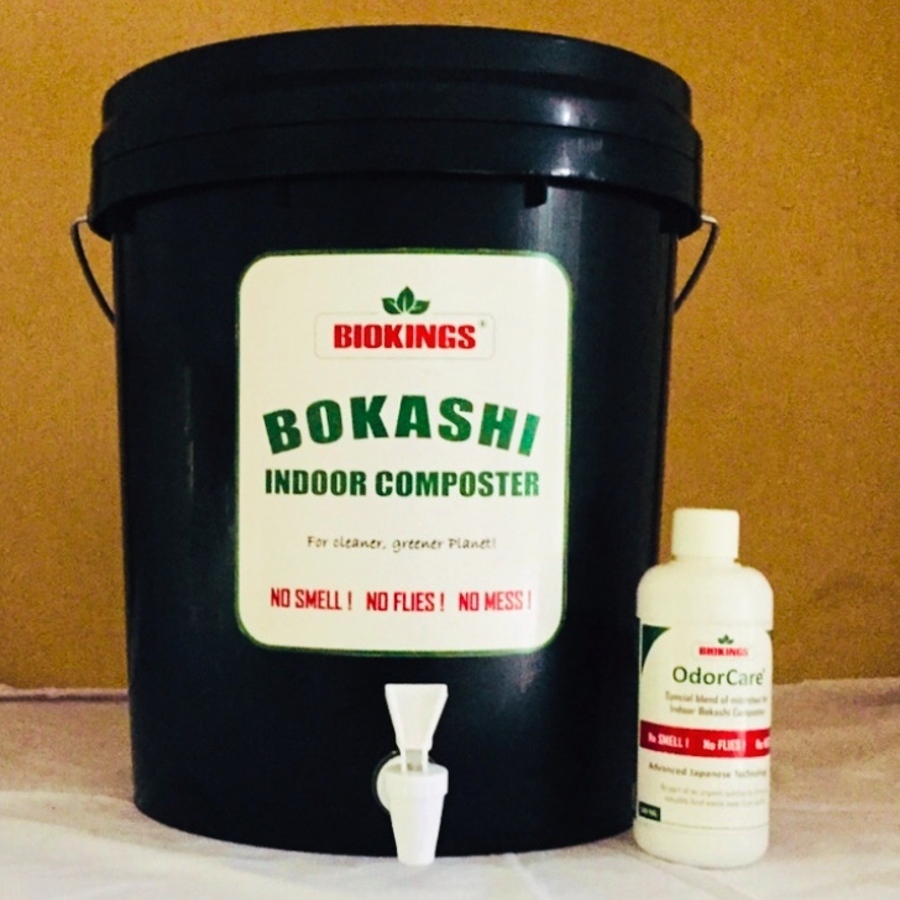
Dehiwala-Mount Lavinia, Sri Lanka
Biokings promotes the bokashi system in Sri Lanka to make composting easier, reduce greenhouse gas emissions, and eliminate the need for imported agrichemical fertilizers. Urban families can use their indoor bokashi bins and OdorCare solution of beneficial microorganisms to transform kitchen waste into nutrient-rich compost with no smell or mess. This prevents food waste from entering landfills and emitting methane, a highly potent greenhouse gas. It also builds healthy soil and contributes to food security. Biokings offers a free step-by-step guide and awareness materials in local languages to make the bokashi system accessible to all Sri Lankans.
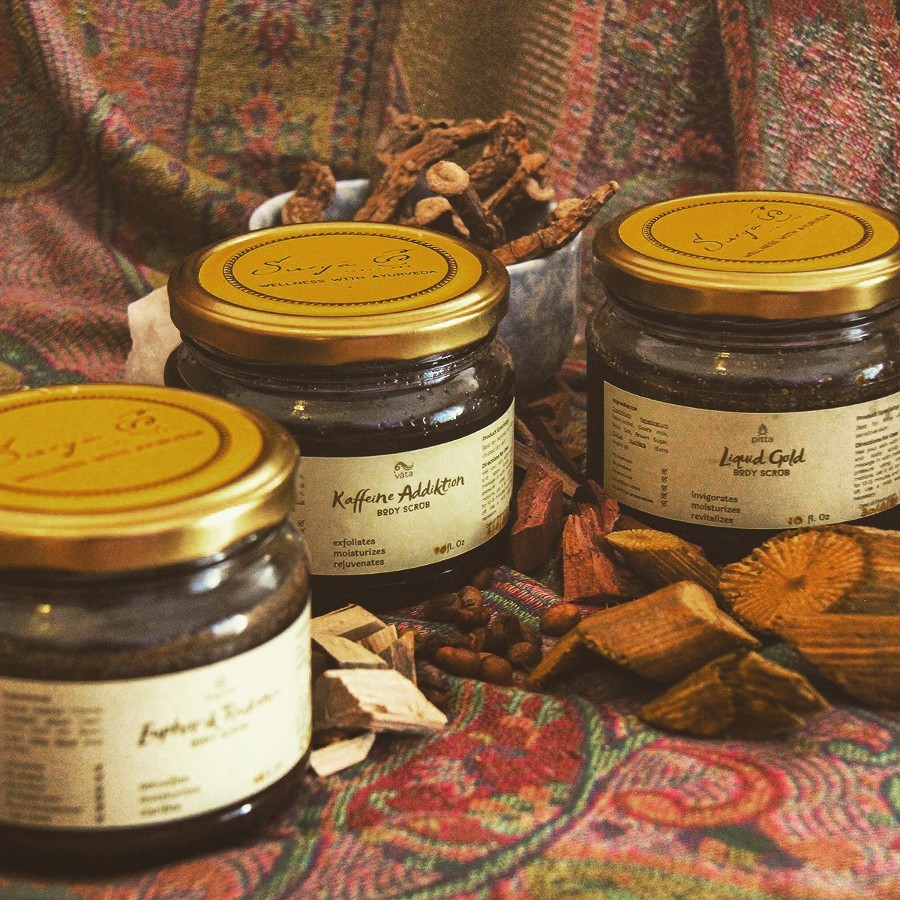
Pannipitiya, Sri Lanka
Surya Shri offers Ayurvedic treatments, supplements, and scrubs to support health and wellbeing and create economic opportunities in Sri Lanka. Products are made from natural, locally sourced ingredients. They plan deliveries to minimize environmental impact and collect glass packaging for sterilization and reuse. Surya Shri donates two percent of all sales to support underprivileged communities.
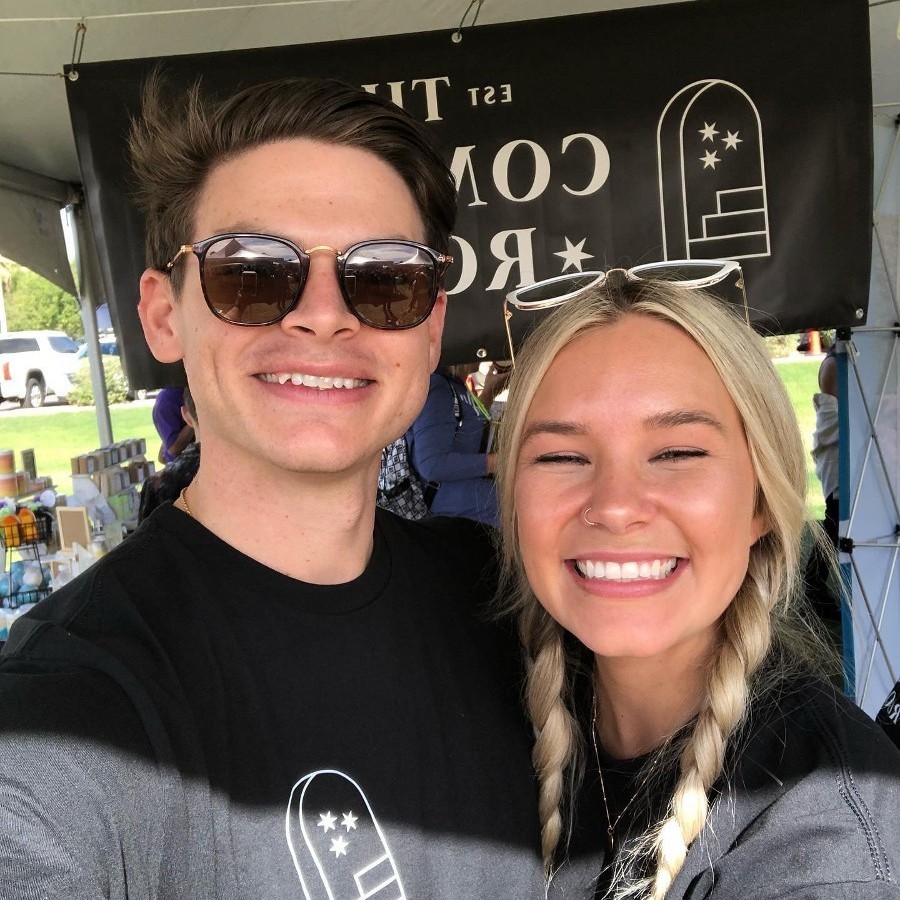
Mesa, Arizona, United States
The Common Room offers ethically sourced and knowledgeably brewed specialty coffee and aims to provide a space where people can connect and find commonality. They produce cold brew coffee in a shared commercial kitchen, sell online and through community markets, and actively support other local businesses. Their coffee beans come from a roaster that maintains direct trade relationships with socially and environmentally responsible growers. The Common Room keeps low margins to make their products more accessible and offers discounts to customers that return their glass bottles for sterilization and reuse.
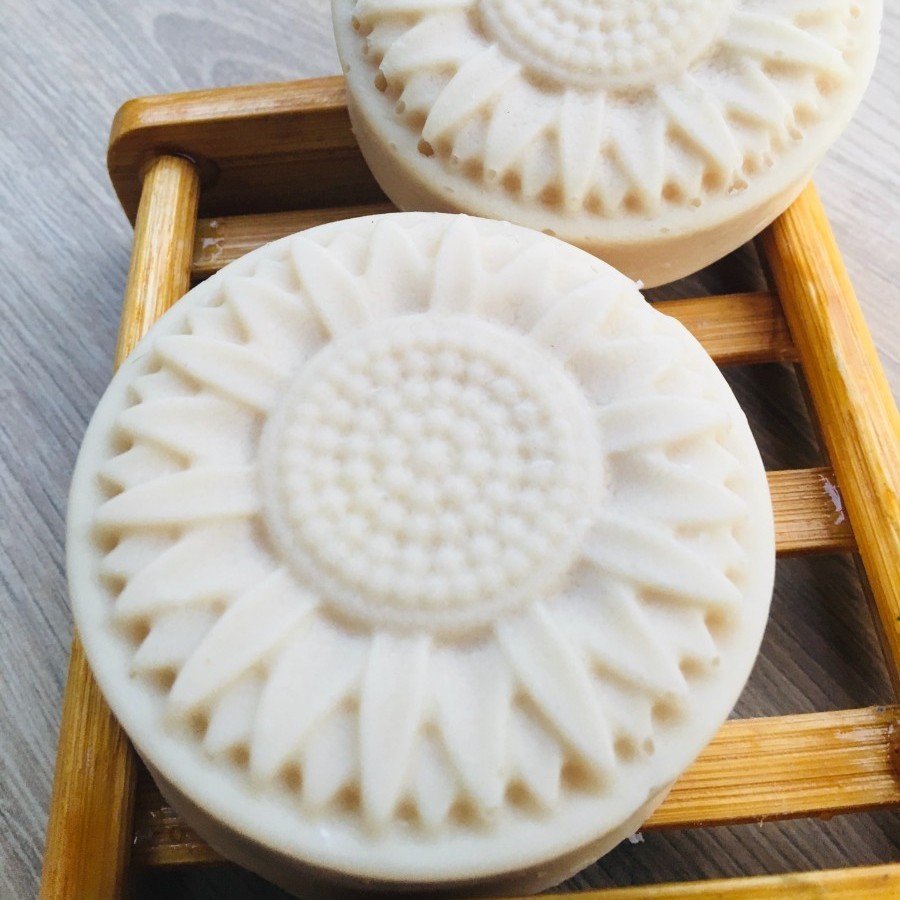
Malabe, Sri Lanka
The Empress aims to make natural, environmentally responsible personal care products affordable and accessible in Sri Lanka. Their handmade soaps, scrubs, polishes, and sugar waxes are free from harmful ingredients and provide a local alternative to synthetic commercial products. The Empress prioritizes ethically and sustainably sourced ingredients including aloe vera, holy basil, starfruit, moringa, turmeric, lemongrass, kapparawalliya, and other herbs from their own garden. Packaging materials are compostable or reusable, and production waste is segregated and composted or recycled. The Empress donates to people in need and provides natural soap to charities and a local cancer hospital.
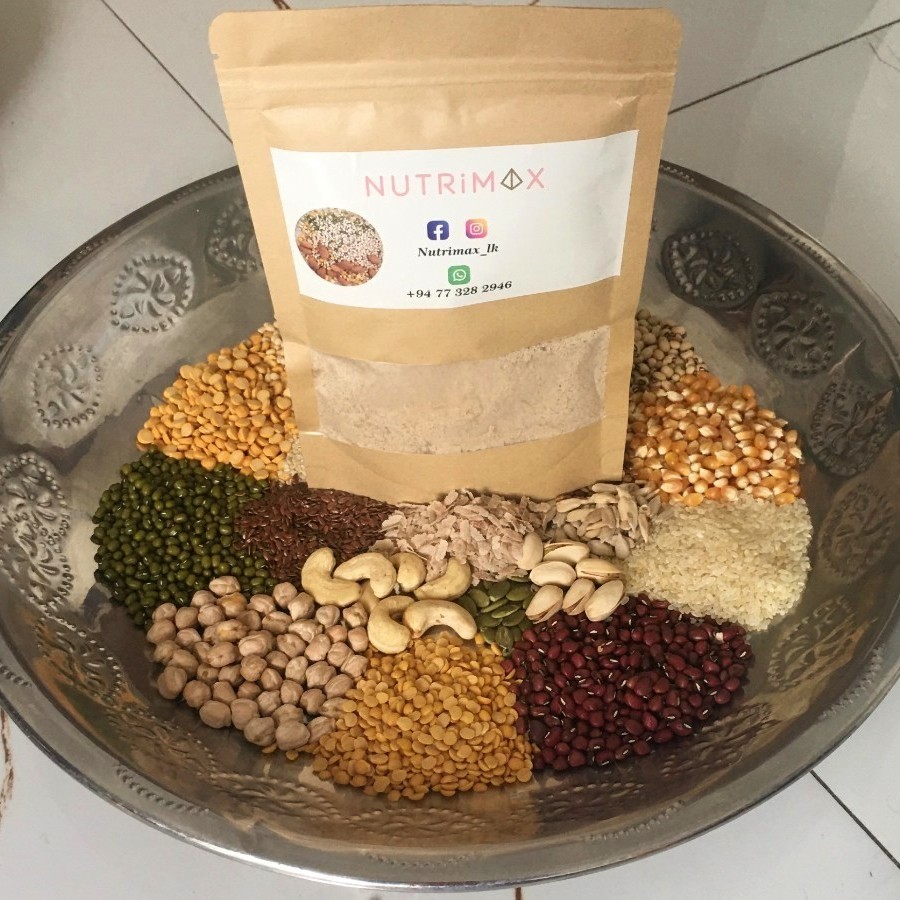
Colombo, Sri Lanka
Nutrimax aims to improve health and nutrition in Sri Lanka by offering vegan protein powders and baby cereals that are locally made from natural ingredients. Their products can be used to make energy balls and other snacks. Nutrimax is committed to environmentally responsible packaging and creating employment opportunities for mothers. They work with the Ministry of Health and local community organizations to identify rural areas with high numbers of malnourished children and provide free products and programs for village mothers and caretakers.
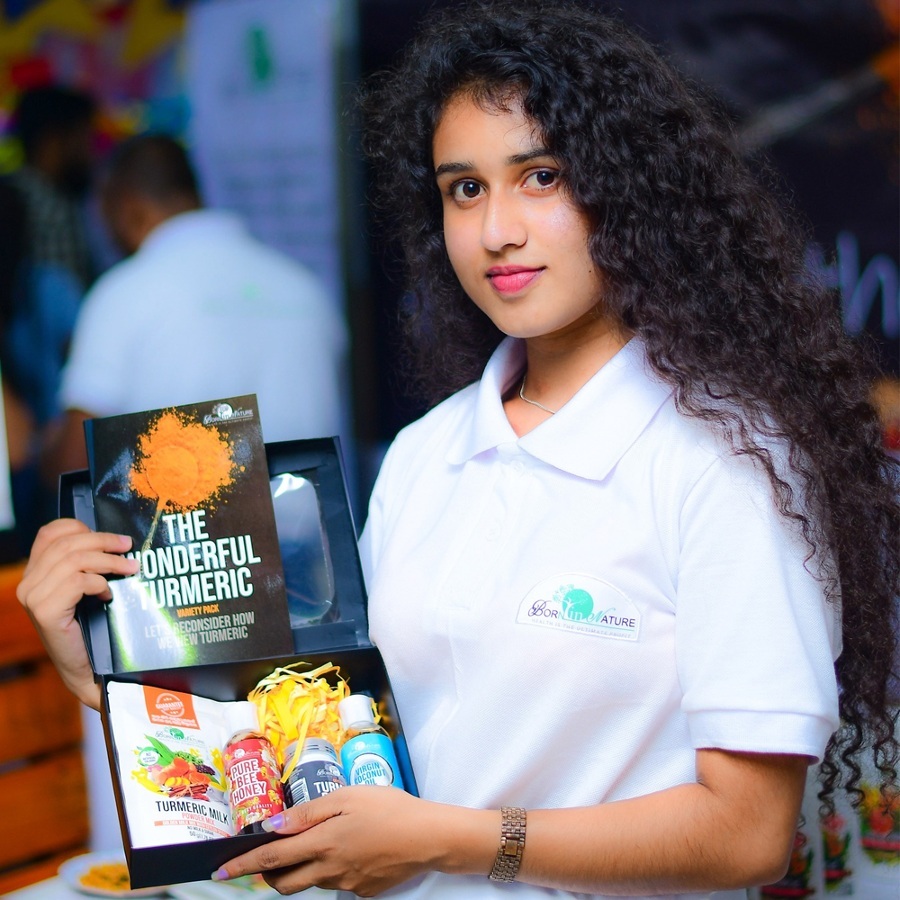
Pannala, Sri Lanka
Born in Nature adds value to Sri Lankan spices, herbs, fruits, and vegetables to supply affordable healthy products, minimize food waste, and create livelihood opportunities for women in Kuliyapitiya. They offer herbal porridge powder, matcha powder, turmeric powder, vegan golden milk powder, scotch bonnet chili powder and flakes, bee honey, virgin coconut oil, bottled kohila, lotus root, jackfruit, and breadfruit, and bottled pickles, pastes, sauces, and curries. Born in Nature collects back packaging and is working towards environmentally responsible packaging solutions for all products. They pay more than market rates and contribute 10 percent of profits to a workers’ fund to support health, education, and other needs.
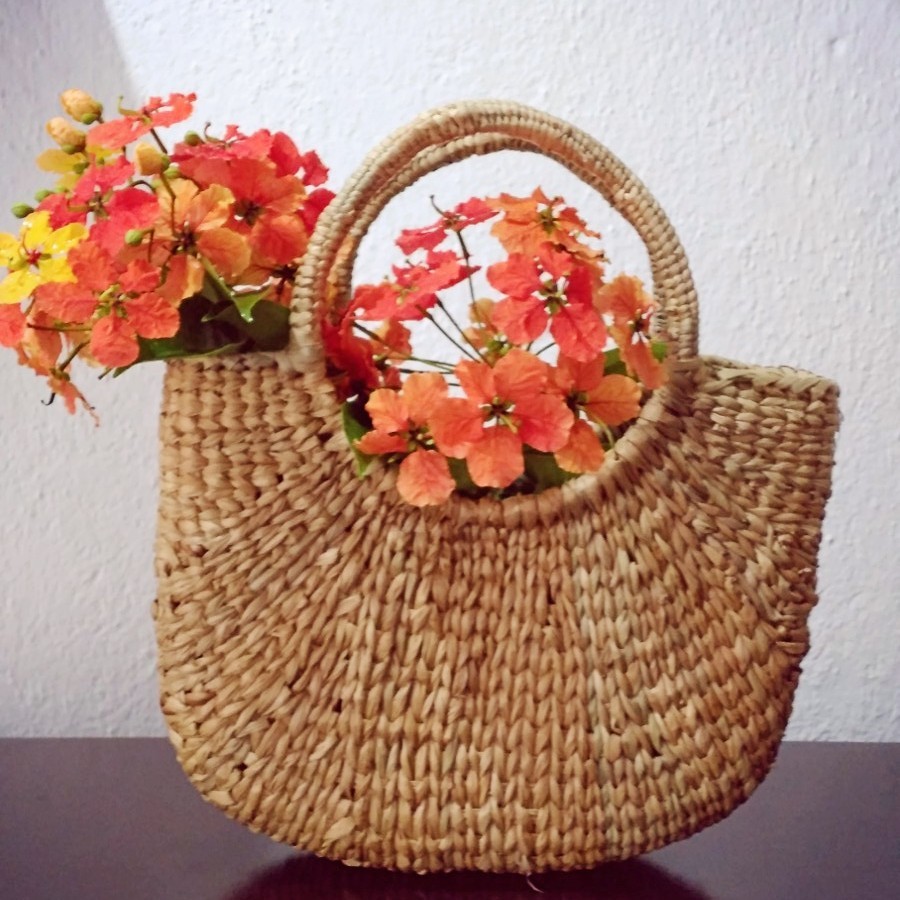
Kandy, Sri Lanka
Agasthya supports rural artisans in Sri Lanka by promoting their handmade, environmentally responsible housewares, clothing, and accessories. They specialize in bags, baskets, and mats that are handwoven from sustainably sourced reeds, palm leaves, coconut coir, and other biodegradable materials. Agasthya provides customers with local, natural alternatives to imported plastic products and enables women caregivers to earn a sustainable income while working from home.
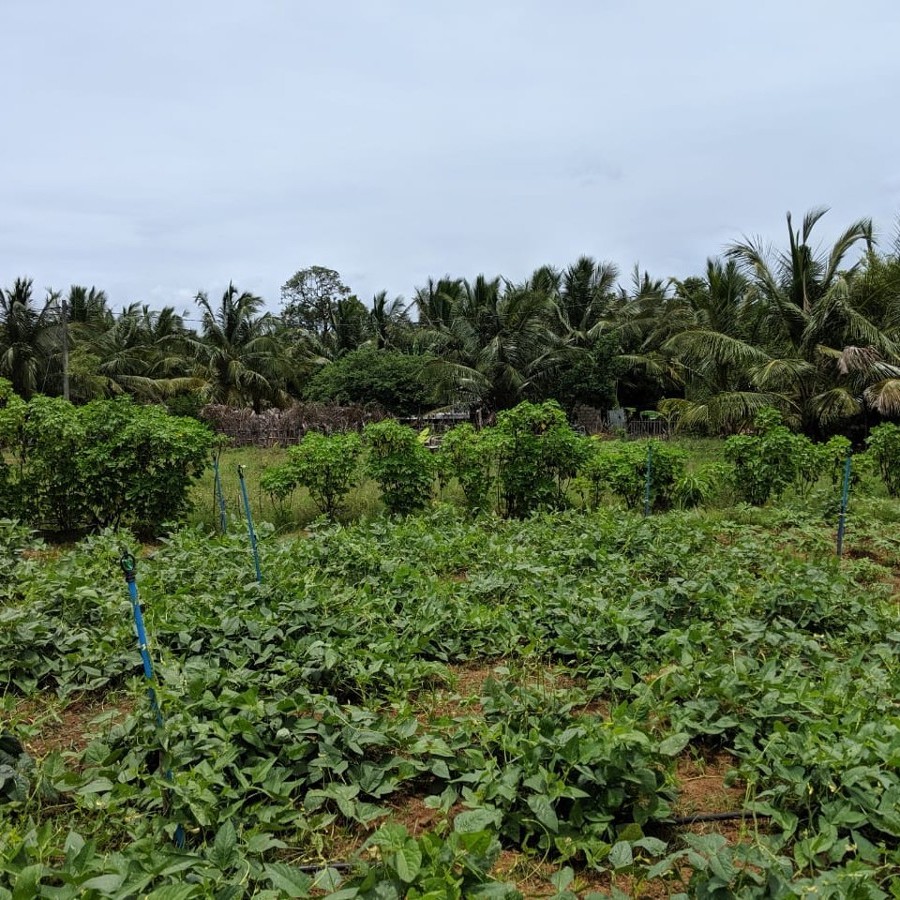
Kaddaiparichchan, Sri Lanka
Pasuncholai Organic Farm focuses on organic foods to protect the environment and future generations. They grow dry zone vegetables, banana, guava, tamarind, mango, and sugarcane in northeastern Sri Lanka. They save seeds, practice mulching, and produce compost and organic inputs from locally available materials. Pasuncholai Organic Farm is verified under a local organic participatory guarantee system (PGS).
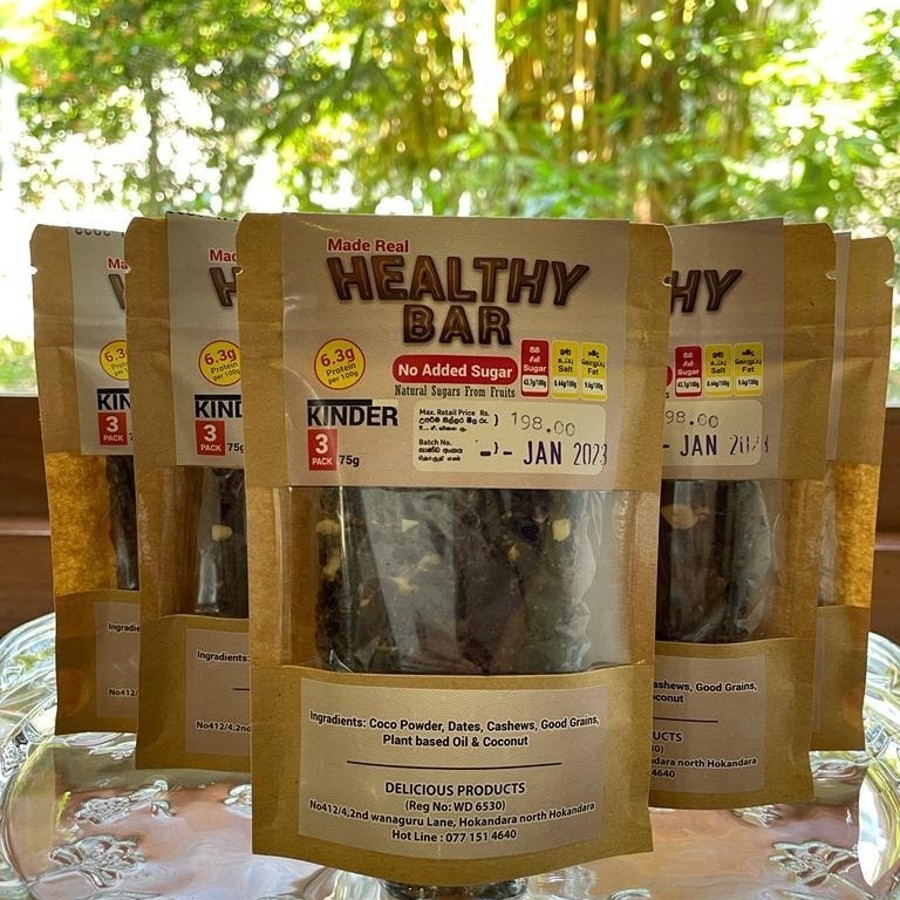
Malabe, Sri Lanka
Kinder Healthy Bar offers affordable natural snacks to encourage people to make healthy real food choices. They specialize in small-batch protein bars made with locally sourced coconut, cashew nuts, red rice, and green gram. Kinder Healthy Bar preferentially hires single mothers in need and allocates 10 percent of proceeds to provide healthy, locally grown vegetables, fruits, and grains to underprivileged families with kids.
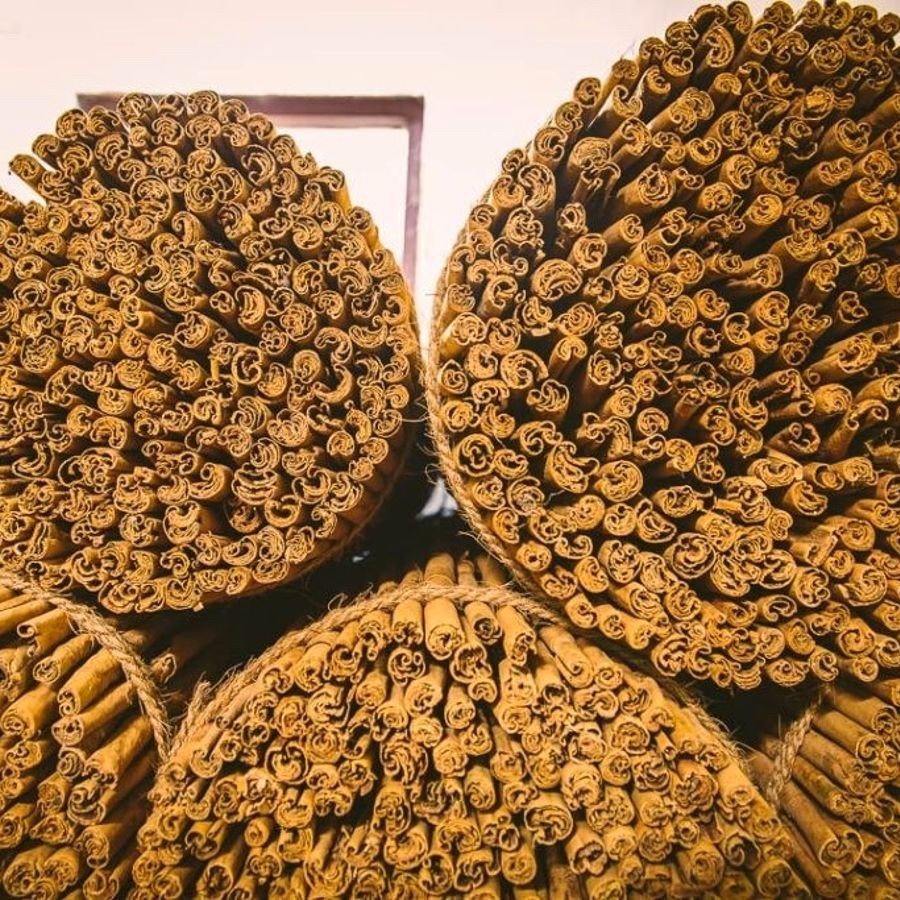
Moratuwa, Sri Lanka
IndiSha aims to bring the health benefits of Ceylon cinnamon to the world. They specialize in a Ceylon cinnamon brew packed in biodegradable pyramid bags and paper canisters. IndiSha sources from small-scale suppliers who are passionate about environmental responsibility.
Know an initiative that’s good for people and good for the planet? The application is currently available in English, Sinhala, Tamil, Urdu, Spanish, and Japanese and started in Nepali: www.goodmarket.global/apply. Want to help make it available in another language? Learn more about the community translation project here.